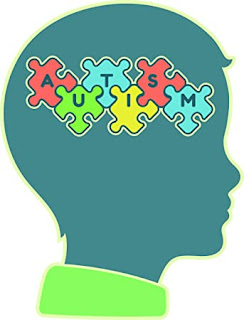For many years it was believed that autism was a condition affecting only males. Kathy D'Arcy and Jody O'Neill, diagnosed later in life, explain how they spent years trying to decipher the secret code that seemed to allow others to communicate and connect so easily.
The study found 14,000 children and teens have an autism diagnosis which comes to about 1.5% of the school-going population.
A review carried out on the back of this study by the Department of Health in 2018 found within that figure about three times more boys are diagnosed with autism than girls.
The Irish Society for Autism says the figure generally accepted for prevalence across all ages is 1 in 100 but this requires further study in the light of the school-children findings
In Ireland about three times more boys are diagnosed with autism than girls, according to a review done by the Department of Health in 2018.
More and more women are getting a diagnosis in later life and they say more attention should be paid to their experiences.
Addressing a recent online seminar on this topic, speech and language therapist Elaine McGreevy said she often meets girls labelled as having oppositional defiant disorder or OCD. But she noted in many cases:
The webinar, organised by St John of God Research Foundation in collaboration with the Psychological Society of Ireland, heard from Irish women and girls on how their slow route to diagnosis affected them.
Ms McGreevy said in the past there was a gender-bias to research with most studies working with men.
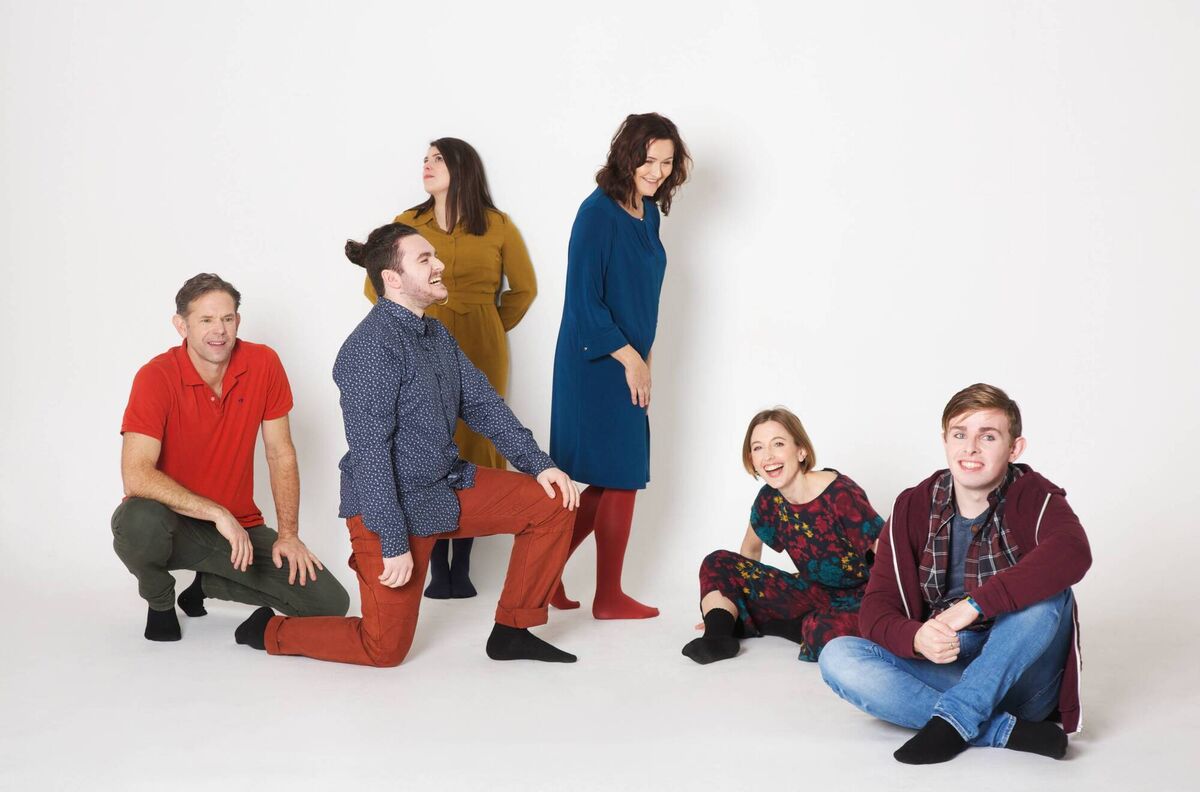
Jody O'Neill with Shay Croke, Paula McGlinchey, Jayson Murray, Matthew Ralli and Eleanor Walsh. Picture: Emily QuinnShe quoted studies which theorised about an “extreme male brain” and excessive male hormones being responsible for autism.
“There has been a great effort to try and redress that balance,” she said, stressing that views on girls and autism are evolving.
“This classic female presentation is that a person is very likely to be a masking person, very able to socially manage a lot of situations while internally labouring really hard and excessive thinking of am I doing the right thing,” Ms McGreevy told the audience.
Social bias can lead to missed diagnosis, she said, so for example a little girl who is overly-formulaic about lining up her toys is seen as neat and cute, while a boy doing the same thing draws attention.
Ms McGreevy recommended a book by Damien Milton which contains interviews with autistic women.
She quoted women saying:
"We need to understand that the truth about autistic people is they are just as diverse as anyone else," said Ms McGreevy.
There is no single right way to treat autistic people, but focusing on social training can lead to girls and sometimes boys feeling they should mask their symptoms.
Describing this as “damaging” Ms McGreevy said: “Support people to be self-advocates, sometimes people need help from certain people at certain times to live the life they want to live.”
Advocacy group AsIAm also warns of the pre-conceived ideas linking boys to autism more strongly than girls.
They say even estimates of how many girls could have autism are unclear: “Various studies, together with anecdotal evidence according to the National Autistic Society, have come up with men/women ratios ranging from 2:1 to 16:1.”
Walking around in circles in the school yard was how Kathy D’Arcy coped aged five, happily avoiding the confusion of socialising at lunch time.
But her difference made her a target for “relentless” bullying in school and she wondered if someone was paying teachers to give her high marks when she was routinely teased in social groups "for never getting the joke/failing to understand basic social cues".
Undiagnosed with autism until the age of 41, she spent most of her life “terrified” and desperately trying to decipher the secret code that seemed to allow others to communicate and connect so easily.
She qualified as a medical doctor before moving into writing and academia, publishing acclaimed poetry and pushing successfully for societal change as a feminist activist.
But despite her apparent success in life, Kathy felt like she was always stuck “behind a screen” or spotlit on a stage not knowing her lines.
“Even though I felt intelligent and I was getting good results in school there were things — very simple things — that I couldn’t do at all. Getting the joke, things that made me feel incredibly stupid and very confused.”
Someone who had a relative with autism recently suggested Kathy get tested after noticing similar traits in her.
She found a private assessor who told her, at the age of 41, that she had been ‘missed’ in childhood.
“Through my reading, I’ve learned that a huge amount of women are missed in childhood because a lot of the research done and published on autism was on boys.
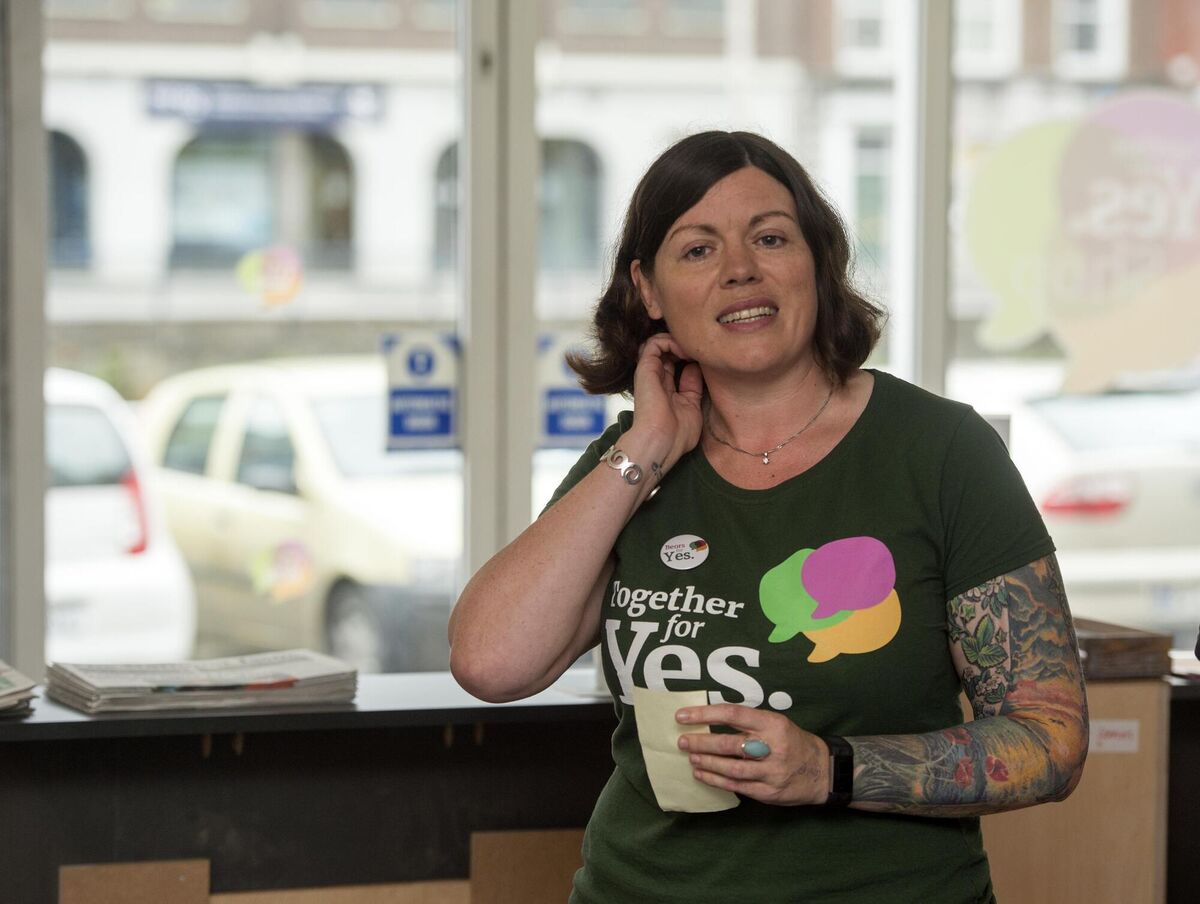
Kathy D'Arcy. Picture: Michael Mac Sweeney/Provision"Also because of specifics in culture around how boys are raised and perceived differently to girls makes it more likely that boys will be identified and girls won’t.
“I’m one of the very many adult women who was ‘missed’ in childhood because they were socialised to comply, to obey, to fit in, not to make trouble, and to mimic appropriate behaviours,” she said.
She publicly shared her diagnosis on Twitter to highlight female autism and “because it’s not okay for you to have to tough it out, to break yourself trying to fit in, to just grit your teeth”.
Being diagnosed as an adult has brought her “great relief” so that she can start to “understand what it feels like to just be, not to be constantly scared and confused, on the stage without the lines.
“The understanding that for my entire adult life I’ve chosen to spend my time doing intensely social jobs which have left me exhausted and questioning my sanity — jobs I have wanted to do while also fearing them to the point of nausea,” she wrote on Twitter when first publicly sharing her diagnosis to throw light on the subject of female autism.
"What would have happened if I had been diagnosed as a child and knew to evaluate my strengths?
"What are my strengths? How do I know what I would love doing when I’ve never experienced what it feels like to not be eviscerated by my work?”
Had she been diagnosed as a child, Ms D’Arcy believes that even if she had lacked the supports available to children now, she would have at least known that she “was not broken, or a failure or stupid”, her brain was just wired differently.

Many teenage girls will 'mask' the symptoms of autism in order to 'fit in'.“When people are researching autism and girls and social camouflage they’ve discovered that you’re very vulnerable to bullying and you’re very vulnerable to exploitation.
"Autistic women and girls are many times more likely than the general population to be repeatedly sexually assaulted and bullied.
“As an autistic girl with no supports I was constantly screwing up my social cues and not understanding how to be friends with people or what being friends with someone was.
And that made me ‘weird’ in a school setting. And kids hate nothing more than someone who’s ‘weird’.
“Because I was in this swamp of confusion and terror I experienced bullying in primary and secondary school, a relentless amount of bullying.
“I already felt like an outcast. I couldn’t connect with people, I didn’t understand how to do that.
“In primary school I used to walk around the school yard in circles because I didn’t know what I was supposed to do.
“I would just walk around in circles — happy — until some domineering little girl would adopt me for her own ends. So I ended up in a lot of domineering relationships which all escalated into bullying eventually.
“But if I was left to be the Kathy that I was, alone, that wouldn’t have happened.” Ms D’Arcy said that she would also have chosen different career paths had she known about her autism sooner.
“I realise now that it is not normal to feel eviscerated by your work. I would come home from work and have to go to bed. And I would beat myself up about that, saying ‘you just have to be better. Something’s wrong with you.’
“It would have been great to know that these intensely social jobs, that I liked the idea of, were bad for me, so I could think instead about what I do well.
“I gave up medicine for many reasons, now I realise part of that was because it wasn’t appropriate for me with my diagnosis.
“I loved the study of medicine but I wasn’t able to cope with the chaos of college at all, the lack of structure and always massive social interaction.
"Practising as a doctor is even worse with the chaos and intense, constant social contact and then you add sleep deprivation.
“So I went into social care part-time while writing — also intensely social — I thought ‘I should be able to do this, so I’ll keep going.’ Other things I’ve done have been teaching — also intensely social — poetry workshops, going to poetry festivals, they’re all the worst possible things I could have chosen to do. And activism.
“They’ve been hollowing me out. And there’s a way to do these things. There’s a lot of online activism I can do.
“And the creative activism has always been my favourite thing — where you do your activism through art, or postering or making videos or poetry, there’s lots of ways to still be an activist. And now that I know my limits I’ll be able to pick and choose what social things I’m involved in and know what to do to make things easier.
“The idea that I could do a job that I could come home from and not have to go to bed is lovely. I’m looking forward to exploring that a bit.”
A Cork playwright whose play on autism took theatres by storm last year says her own route to diagnosis was “convoluted” but the right choices were made in the end.
Jody O’Neill wrote and acted in at the Everyman Theatre this time last year, working with other autistic actors.
Looking back at her childhood, she said: “It was a more convoluted route than people might go through who have more obvious disabilities.
"I suppose that’s one of the things about female autism is that it presents in some cases different to males, and we are only really learning about it now.”
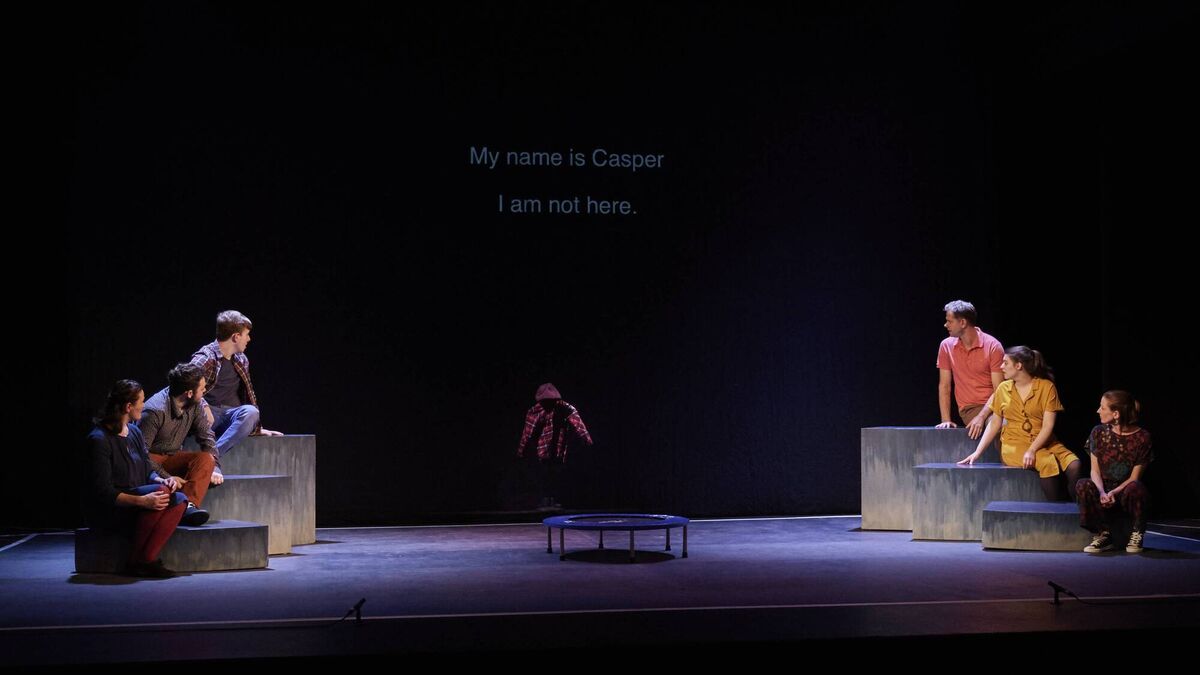
Jody O'Neill on stage with Shay Croke, Paula McGlinchey, Jayson Murray, Matthew Ralli, and Eleanor Walsh. Picture: Ros KavanaghNow in her early 40s, she says as a child people were less familiar with the different ways Autism can show itself.
“I would have stood out as being particularly shy and particularly dependent on a small cohort of people," Jody says.
Jody took part in the webinar to help spread that message, and communicate what the subtle signs might be.
“We still have criteria and assessment for autism that are, like a lot of medical research, based on male prototypes. I think we are still trying to find our way,” she said.
She said typically girls are more likely to mimic or learn behaviours from their friends at school which could hide their autistic traits.
“A girl is more likely to watch her peers very carefully and do what they are doing so as not to stand out.
"There are so many different factors,” she said.
She was already in her late 30s and guiding her son through diagnosis with autism when she recognised herself in the literature.
“It was a gradual dawning,” she said. Her diagnosis came in 2019 at the age of 39.
Later, writing her play was the stepping stones into being an activist. She realised she could not encourage herself to feel comfortable about being autistic unless she was willing to speak out also.
“We just look at autism as another way of looking at the world, and experiencing the world. Some of that is better than your typical experience, and some of it is not and is more challenging,” she said.
The play includes a Q&A session at the end, and Jody said many of the people who joined in from the audience were older women.
“A lot of people said they heard their childhood being reflected back at them in the play, they said ‘ah OK, now I get it’.
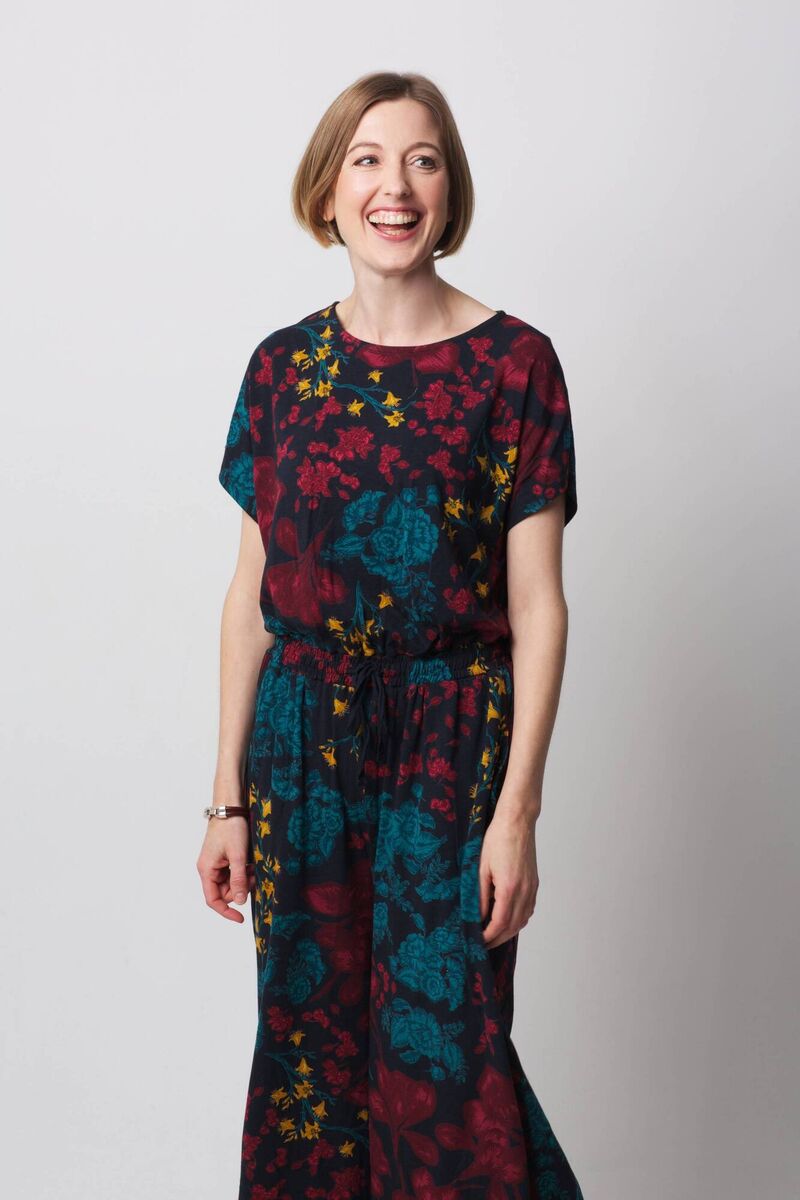
Jody O'Neill: Was diagnosed at the age of 39."One woman said she had lived 40 years and now knew what was wrong with her, she was going to seek a diagnosis. It has a direct impact on people,” she said.
And she found in conversations with parents of autistic children that her choice to stage the play with autistic actors had a huge influence. She was critical of dramas which tell stories of autism but cast neurotypical actors in the role.
“A lot of autistic people have never seen themselves on stage, in our play all of the actors were autistic as well.
And she added: “And for parents to come, parents who might have had a lot of hope about their kids taken out of them by the system, it was important.
"People tell you stuff about your child that isn’t necessarily true, it is really important to see positive role models.”
Some parents emailed her afterwards to say things like ‘I won’t stop my child from stimming in public anymore because I now understand that it’s important’ and this adds to the pleasure she gets from creating.
The play’s run finished shortly before the pandemic hit in March.
However, they now have funding to stage it again, this time at the Abbey Theatre in Dublin with the addition of a live-stream to increase audience access.
Jody O’Neill feels as a woman there is an extra impetus on her to speak out so that women understand the broad range of autism disorders.
And she has found people are more open to this than she might have expected, saying she has experienced no judgement.
She said: “There may be people who go ‘now I know she’s autistic, I don’t want to hire her’ but maybe I don’t want to work with those people either.”






